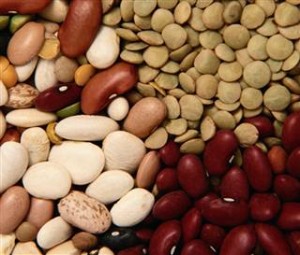You’ve heard it before: Not all carbs are created equal. And never has this been more true than in the new findings surrounding resistant starch, a type of carbohydrate that has produced promising results in helping to promote weight loss, improve digestion and keep insulin levels balanced.
We predict that headlines will soon be abuzz with the benefits of resistant starch, so to keep you a few bites ahead of the weight loss game, here is the skinny on this healthy nutrient.
What is resistant starch?
Resistant starch is a nutrient similar to the sugars, fibers, proteins and fats found in the food we eat. During digestion, all of these nutrients are metabolized and processed and used for our immediate or long-term energy. Resistant starch behaves much like fiber, in that it “resists” being digested and ends up in the large intestine where it is eventually passed. It also has some of the same benefits as fiber, in that it helps to relieve constipation and promote regular digestion.
Where do you find resistant starch?
Resistant starch can be found in lentils, split peas, kidney beans, navy beans, brown rice, barley, oatmeal, corn, potatoes and whole-grain bread and pastas.
Try incorporating these foods into your regular diet, but keep in mind that you get the most benefits when you cook these foods and then eat them when they are cooled.
What is the weight loss connection?
There are few ways that resistant starch may play a role in weight loss. First, resistant starch foods are bulky so they take up more space in your tummy making you feel full sooner. Also, because you don’t absorb them, they bypass your bloodstream and instead travel to your intestines where they are eventually eliminated.
In addition, resistant starch may burn more fat. As it travels through the digestive tract, it becomes fermented and releases a fatty acid called butyrate. Butyrate helps to increase the amount of stored fat and immediately-consumed fat that your body burns for energy. Resistant starch may also have certain properties that suppress hunger, which result in consuming less calories and eventually losing weight.
While science is still hard at work to produce conclusive data that resistant starch is a true weight loss solution for those who are overweight, the research so far has yielded some very important results. Furthermore, since foods that contain resistant starch have so many other healthy qualities, like vitamins, protein and fiber, we could all benefit from incorporating more of this plant-based nutrient into our diets.


I had no idea about most of this. Even more reason to keep trying for the whole grains as much as possible. Thanks.
You’ve got most of the details right, but most resistant starch is not “eventually passed”. It is mostly fermented, and that fermentation is the key to improved insulin sensitivity (3 published human studies), increased fat burning (1 published human study), increased satiety and now starting to see decreased caloric intake in the 24 hours following resistant starch consumption. Most other insoluble fibers (from whole grains, wheat, soy, etc.) are not fermented and cannot deliver the same benefits. You can also look for Hi-maize resistant starch, a natural resistant starch from corn, available from King Arthur Flour. It retains its resistance through baking, so can be substituted for flour in foods like pancakes, cookies, brownies, etc. Not to promote sweets, but if you’re going to eat them – at least make them so they’ll give you important resistant starch benefits.